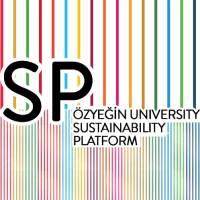Investigation of Active Companies in Turkey in terms of Sustainability: Construction of Composite Indices

Project Manager:
Mehmet Ali Soytaş, Meltem Denizel, Damla Durak Uşar
Section:
Economics
Research Areas:
econometrics, business economics, applied microeconomics
Project Start Year:
2016
Phone:
+90 216 564 94 38
E-Mail:







About the Project:
This project aims to construct a comprehensive and independent index in order to investigate the active companies in Turkey and to score Turkish companies. There are many independent institutions that investigate foreign companies in terms of sustainability, such as MSCI KLD 400 Social Index, Dow Jones Sustainability Index, Global Reporting Initiative and CSRHUB. There is also a good deal of research carried out to empirically analyze the relationship between sustainability and financial performance in international literature. However, Turkish companies are inadequately represented in the data sets such as Global Reporting Initiative (GRI) and CSRHUB whereas they are not even included in MSCI KLD 400 Social Index and Dow Jones Sustainability Index. Moreover, Borsa Istanbul (BIST) only investigated the companies which are in BIST 30 and qualified 15 companies to be on the BIST sustainability index. So, the research conducted on sustainability in Turkish literature hasn't been able to produce proper results in statistical terms due to limited sampling. It is obviously necessary to construct a comprehensive and independent index in order to score Turkish companies and investigate the active companies in Turkey. In this regard, the scoring methodologies in the databases DJ SI, BIST SE, CSRHUB, MSCI KLD and GRI have been examined. For DJ SI and BIST SE, sustainability is defined on the basis of inclusion or non-inclusion in the index. On the other hand, CSRHUB and MSCI KLD evaluate companies according to different criteria. CSRHUB calculates scores for both total sustainability and sub-titles. MSCI KLD doesn't calculate scores for total sustainability, but researchers can reach a total score by giving appropriate weight to the categories in accordance with their consideration. As for GRI, it evaluates companies' reporting performance instead of sustainability performance, but it can be accepted that reporting performance and sustainability performance are interrelated, so reporting score can be taken as a representative variable for sustainability performance.
Project Finding:
In this project, we have considered the needs of the business environment in Turkey as well as the criteria in the data sets which are analyzed while composing the sustainability index. Planet, people, and profit, which are the three pillars of sustainability, have been primarily considered while classifications have been carried out following the identification of the criteria. The classifications have been shaped in line with the scientific sub-sections in business field and the functional sections in companies, which has enabled the construction of an index from which both academic environs and business world could benefit. As a result of the brainstorming among the project team, the components of the sustainability index have been determined as follows: environment, workers' rights, human rights, corporate social responsibility, corporate governance and supply chain, and the sustainability index value has also been set. In cases where information related to the criteria under the sub-sections is accessible on the corporate website of the company or in the reports published by the company, this adds 1 point in the score whereas the opposite case counts for 0 point in its score. The sub-section scores have been calculated by adding the points given to the criteria. As for the sustainability score, it is calculated by adding the points given to environment, workers' rights, human rights, corporate social responsibility, corporate governance and supply chain. We have scanned the corporate websites of 236 companies the financial data of which we have (and which are included in the data set Wharton Research Data Services’ COMPUSTAT). These companies have been evaluated based on whether their websites include information about their sustainability, corporate social responsibility, environment and energy, occupational health and safety policies or not. Their current reports of sustainability, corporate social responsibility, activity, and corporate governance compliance reports have been downloaded respectively. The reports of the companies which have inoperative websites due to bankruptcy or merger have been inaccessible. The reports of 209 companies have been accessed. In the first stage, these companies have been analyzed by two researchers. Krippendorf's alpha has been calculated to determine the internal validity of the indices. The Krippendorf's alpha has been calculated to be 0,5759 for the sustainability index. However, it is recommended to range between 0,6 and 0,8. In order to evaluate the validity of the index more clearly, 30 of the foreign companies scored by MSCI KLD 400 Social Index and CSRHUB have been randomly selected and they have been evaluated according to the index which has been constructed by the same two researchers. Spearman correlations of the scores of the foreign indices and the scores reached by the index we have just developed have been measured. The Spearman's correlation constants have been calculated between the scores computed via foreign indices and the scores computed via the constructed index. While the correlation for MSCI KLD 400 Social Index is 0,6549, that of CSRHUB has turned out to be 0,5653. In addition, the Krippendorf's alpha for the evaluation of the 30 foreign companies has been calculated to be 0,85887294. These values point out to the fact that the constructed index has both internal and external validity. In the second stage, a larger group of researchers will investigate the companies which are active in Turkey.
Goal:
SDG 5, SDG 7, SDG 8, SDG 9, SDG 10, SDG 12, SDG 13
Target:
SDT 5.5, SDT 7.9, SDT 8.7, SDT 8.8, SDT 9.b, SDT 10.2, SDT 12.2, SDT 12.4, SDT 12.5, SDT 12.6, SDT 13.3
